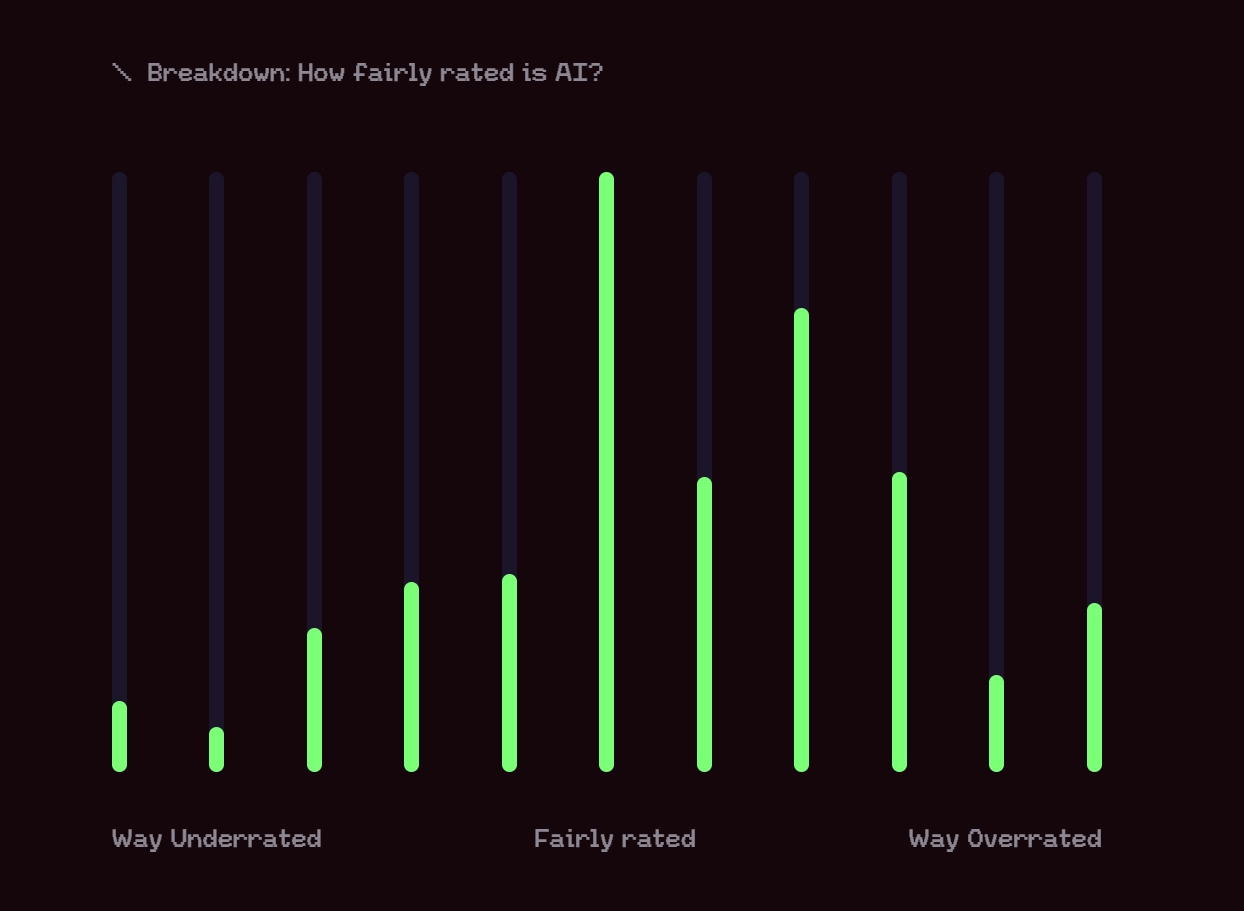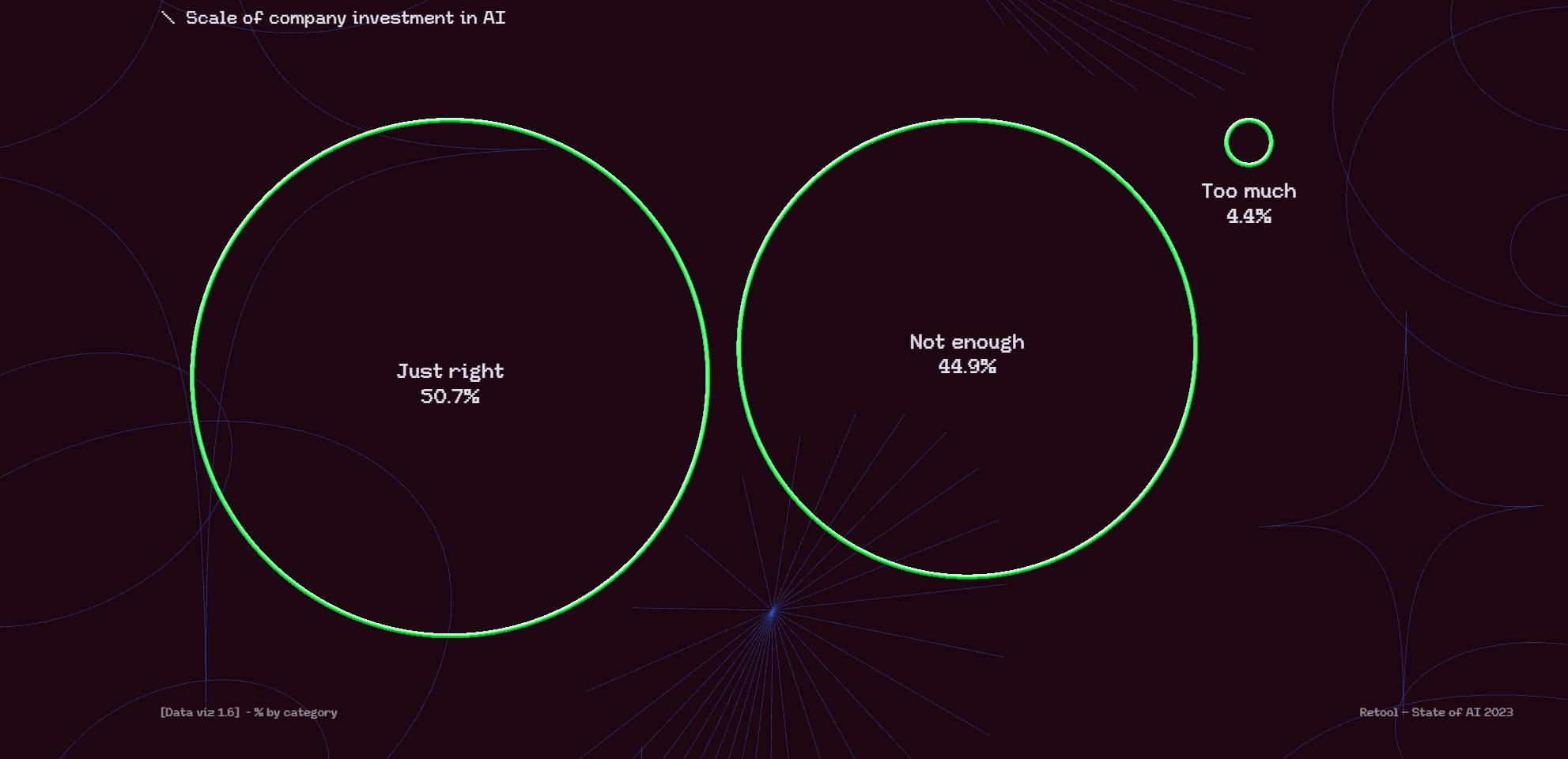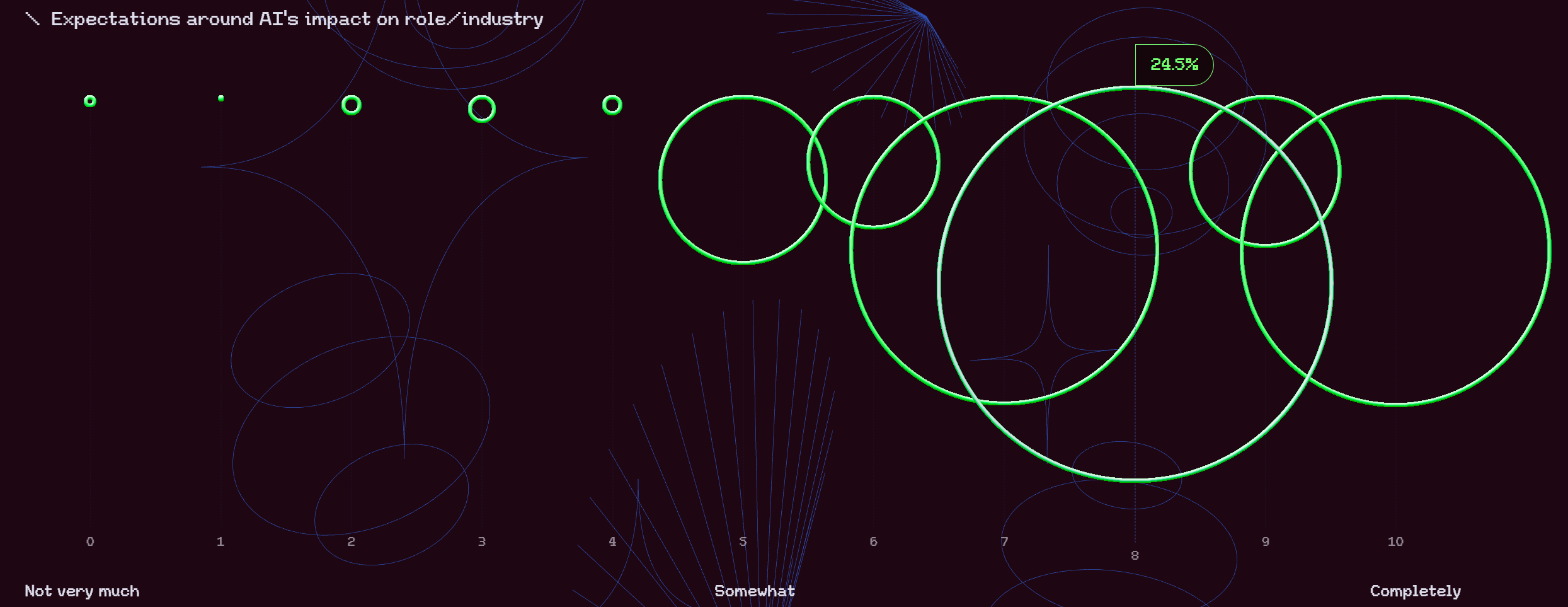In brief: Few technologies have gone from the tech fringes to becoming a global phenomenon quite like generative AI. But even with billions of dollars being invested into the industry and tools like ChatGPT attracting over 100 million weekly users, the question of whether the hype is justified hasn't gone away. According to a new survey, over half of those working in the tech industry believe AI is overrated.

Retool, a development platform for business software, recently published the results of its State of AI survey. Over 1,500 people took part, all from the tech industry: software engineers, business leaders, execs, product folks, designers, etc.
The first and biggest question the survey asked was how fairly rated is AI. Just over 23% believe it is rated fairly, while a quarter of respondents were presumably proponents of the tech as they said it was underrated. However, 51.6% of people said it was overrated.
It might not be surprising to learn that upper management, many of whom see generative AI as a way of cutting costs by replacing workers, had the most favorable views, while non-executive employees who actually have to use generative AI once it's implemented in their workplaces (assuming it doesn't replace them) mostly felt it was overrated.
Some of that skepticism will likely be from factors found in the section on "pain points around developing AI apps." Just under 40% of respondents said the accuracy of answers was the biggest concern, followed by data security, hallucinations, and associated costs.
Among those respondents who believe AI is overhyped, only 14.4% said their employers were overinvesting in the technology, suggesting they understand the importance and potential of the technology in the workplace even if they don't see it as world-changing, at least not yet.
Elsewhere, 77.1% of those who took part said their companies were making some effort to adopt AI into the workplace. Moreover, an overwhelming number of respondents expect AI will either somewhat or significantly change their jobs and industry over the next five years.
"The AI revolution has been breathlessly covered but we've seen a lot less about use cases, especially in business," said David Hsu, CEO and founder of Retool. "We did this survey and report because it won't be possible to truly harness AI without first appreciating how it's being used. What our findings make clear is that while AI isn't replacing most technical jobs, it's reshaping them – and people are latching onto the technologies that help them accelerate and strengthen their work."
https://www.techspot.com/news/100905-over-half-all-tech-industry-workers-view-ai.html


